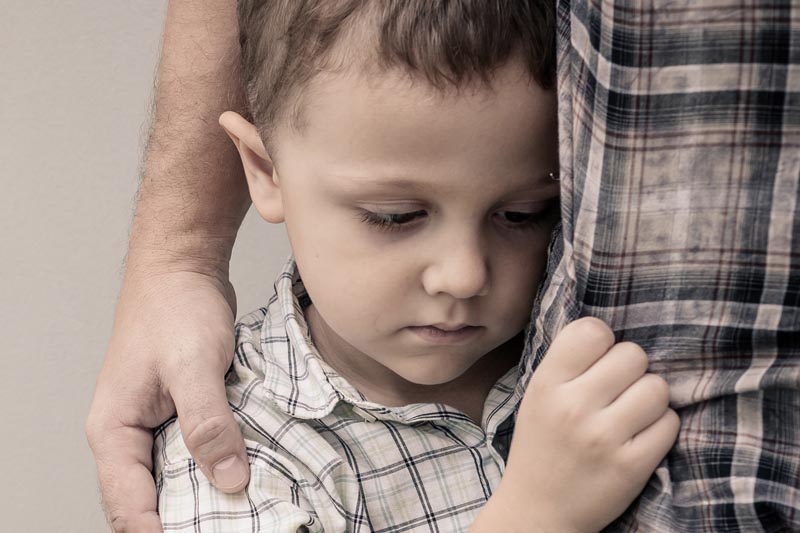There are no perfect parents, no perfect families and there are definitely no experts when it comes to dealing with teenagers. If you think otherwise, you’ll inevitably be proved wrong!
Sure, there are neglectful and dysfunctional parents and families that damage their children and teens. However, most parents are just doing the best they know how; they are caring and concerned and very considerate of the needs of their children. Of course, some parents are so concerned with getting parenting right, that they ‘make a rod for their own back’ by being over-protective and overindulging their teenagers (better known as ‘snow plough parenting’), or, alternatively, use command and demand strategies that end in acute conflict, powerlessness and frustration.
We can very easily fall into the trap of trying to parent teenagers long after they no longer accept our parenting and should be allowed to experience responsibility for their own lives and choices. If we press on regardless, in childrearing mode – expecting they’ll listen and respond to being told what to do, we stand the chance of seriously jeopardising the future possibility of a mutually respectful relationship with them.
It’s no easy thing to relinquish rescuing or control, but there comes a point when relinquish it we must, if our teenagers are to begin to grow up into adults and if we are to make room for an amicable future relationship with them as cohabitants of the adult world.
Age can be deceptive
Our current notion of adolescence is unfortunately out of date and out of touch with the physical development, awareness, experience, communication capacity and behaviour of modern teenagers. This can mean that our parenting style and approach can be out of synchrony with the age of our teenager, just as some teaching and behaviour management strategies may also be overdue for age related adjustment and revision.
Many 14 year old teenagers (and sometimes even younger) are sexually active, experimenting with drugs, using alcohol and expecting a degree of autonomy unimaginable a few decades ago. We may not like it, but it is a reality that we simply have to come to grips with and approach in a constructive way. This doesn’t mean that we have to abandon our values, but it does mean that we may need to reassess what is achievable with our teenagers and what we can reasonably expect of ourselves as parents.
Gender does matter
Boys are not girls and girls are not boys. Yes, you might think this is yawningly obvious, but such differences have all too often been minimised or overlooked. We now know that differences in male/female physiology and even brain anatomy, result in significant differences in coping, emotion expressiveness and social behaviour. These need to be taken into consideration both at home and at school.
Science is progressively informing us of new complexities of upheaval occurring in the teenage brain, hormones and body during adolescent development and that there are important differences between boys and girls, not just in learned behaviour, but in how their physiology affects their experience and behaviour.
Both genders have their own unique needs and issues of learning, interpersonal relations and making the transition to adulthood. Add to this other factors like how they are targeted by advertisers trying to influence their patterns of consumption by exploitatively manipulating issues such as body image, self-acceptance, peer recognition and group inclusion and it isn’t hard to understand why they are sometimes unpredictable and impulsive.
Because there are real emotional and behavioural consequences for teenagers – both male and female, resulting from our choice of approach when it comes to the issue of gender, it is important for us to get it right.
It‘s a teenagers ‘job’ to challenge boundaries
Teenagers are meant to challenge boundaries, because they have to learn how to act with autonomy and independence, in readiness to leave home and fend for themselves.
Parents often find teenage experimentation with language, behaviour and boundaries very difficult. They sometimes want to keep their emerging adolescents as children, or want them to quickly grow up, not realising that this entails a significant and necessary shift from parenting children to coaching beginning adults.
This shift in emphasis isn’t easy for teachers either, who have the pressure of performance expectations in an environment that is socially artificial and increasingly unmanageable. They find it very difficult to make the time to work with issues of adolescent to adult transition and must often exercise demand and command strategies – which at best have limited effectiveness. Teachers everywhere lament how difficult it is to facilitate learning in schools, as well as managing behavioural issues of increasing complexity.
Teenagers require a particular approach
Demanding and commanding works with children, but not with teenagers.
On the other hand, indulging teenagers to pacify them and keep the peace is usually equally disastrous. This isn’t what they need and is rarely what they really want.
Teenagers do usually respond to reasonable boundaries and can nearly always be co-opted in a process of rational negotiation, setting and cooperating with fair and sensible ground rules, with some degree of success.
If asked what they think would be a reasonable: amount of time on the computer; time for getting home; list of household chores; way for family members to speak to each other; or consequences for breaking an agreement or negotiated ground rules, they will likely be as conservative as their parents or teachers might be in what they suggest and are prepared to go along with.
It can also be effective to suggest to teenagers that they themselves take the initiative in suggesting how they might contribute to their family household and manage homework and their social activities, as a way of avoiding being told or dictated to by parents. So long as they are coached in being reasonable, the need for safety and in being respectful in how they approach this and if their parents are prepared to accept some compromise and to ‘cut them some slack’, things can be made to work out for everyone. Part of this equation is of course the need to periodically revisit and review what has been agreed, to see how well it is working.
Encouraging responsibility
Teenagers, as emerging adults, need progressively to be put in control of and made responsible for themselves and their social, financial and other responsibilities. How else can they begin to learn how to become resilient and competent adults, unless they experience the consequences of their choices?
They may of course try and use puerile regression (becoming a child again) to escape responsibility when it doesn’t suit them and to manipulate adults into giving them what they want. Consistency of approach of parents and teachers is essential here. Emerging adults cannot have it both ways; they should not be permitted to demand adult freedoms one minute and to want to be indulged and rescued like a dependent small child the next. Successfully making the transition from childhood to adulthood means no going back, but still requires consistent adult encouragement and psychological support to manage times of vulnerability, upset, difficulty and anxiety along the way.
Learning adult help-seeking
Part of helping teenagers to grow in maturity is to model for them appropriate forms of adult help-seeking.
This does not mean finding someone to rescue them from the consequences of their own poor decisions, or substitute parents who will indulge them, but supportive and constructive adult assistance, to be able to make sense of their experience, engage them in thoughtful problem solving and to learn strategies for dealing with difficulties, whether financial, personal, interpersonal, or to do with work or study.
In common with seasoned adults, they need to be known, understood, have their emotional experience validated and be able to access wise counsel when they seek it and are receptive to it.
Parents and teachers need to work together
Though teenagers may sometimes set parent against teacher in dealing with problems or in trying to escape having to face uncomfortable experience, they do not benefit from this and need the adults around them to confer and cooperate in their best interests.
Many of the same issues occurring at home may be evident at school, but if not tackled in concert across both environments, can see conflicting management strategies being used by parents and teachers, counterproductive for everyone concerned.
Wherever possible teachers and parents need to exchange notes and work together in the same endeavour to coach teenagers making the transition to adulthood.
To purchase this printed resource please visit this page
To be sent this resource as a download please contact us



